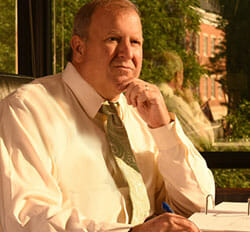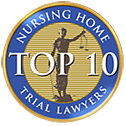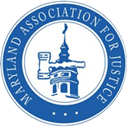Should Complaints About Nursing Homes and Assisted Living Facilities Be Anonymous?
July 15th, 2016 by Attorney Roger Weinberg
If you want to file a complaint with Maryland’s Department of Health & Mental Hygiene you can do so anonymously or you can include your name and choose whether or not the facility can learn of your identity. Whether anonymous complaints serve the public is being debated in the Illinois legislature, according to U.S. News & World Report.
Those in favor of the law claim it should cut back on false complaints and ones made to harass facilities or individuals.
Complaints and investigations are important tools government agencies can use to try to prevent neglect and abuse and make facilities responsible. If there are multiple complaints about the same facility, it may show a pattern and practice of harm to residents that shows that management, if not ownership as well, is indifferent to the welfare of their residents.
Though the identity of the person filing the complaint might not be disclosed to the facility, some patients’ rights groups object to the proposal, not to investigate anonymous complaints.
- They fear it would deter legitimate problems from being reported and make the overall complaint process more difficult.
- One possible outcome of a complaint tied to a specific resident is that the person may be moved to another facility, which can be a traumatic and substantial undertaking. Blowing the whistle may result in losing care that, as problematic as it may be, the person relies on.
Those in favor of the proposed bill make these claims about anonymous complaints:
- They are more difficult to investigate
- Anonymous complaints create opportunities for false complaints
- They result in time being wasted investigating baseless claims instead of being spent on those with merit.
The Illinois Health Care Association (which represents the state’s nursing homes) claims the system allows for abuse and that those with legitimate complaints wouldn’t be deterred from filing them under the proposed rules. The association claims:
- About 20% of nearly 5,000 complaints against nursing homes or other long-term care facilities were filed anonymously in 2014.
- Around 31% of anonymous complaints were found to be substantiated.
- Nearly 40% of non-anonymous complaints were found to be substantiated.
Opposition to the bill is coming from within state government.
- Jamie Freschi, Illinois’ long-term care ombudsman, is quoted as saying, “Every other hotline in Illinois allows for anonymous complaints, whether for child abuse, domestic violence or 911…If this bill passes, elder Americans won’t be afforded the same rights.”
- The state’s Department on Aging publicly opposes the bill, claiming the validity of 2014 complaints, whether filed anonymously or not, was virtually the same. An agency spokeswoman stated removing the ability to remain anonymous would fail to put residents first. She said if the law changes, anyone intentionally filing a false complaint could simply submit a false name on the complaint as well. The agency encourages people filing complaints to identify themselves, but it’s not required.
The bill is currently in committee, and Illinois Governor Bruce Rauner has made no commitment either way on the proposal.
Neglect or abuse of nursing home or assisted living facility residents should be reported. Thankfully, those of us in Maryland have the option of filing a complaint anonymously or of identifying ourselves, which is how it should be. If you or a loved one has suffered neglect or abuse at a Maryland nursing home, assisted living facility or group home, we can help you address the situation and hold those responsible accountable for their actions. At the Law Offices of Roger S. Weinberg, you’ll find compassionate support and experienced advocates to help your family through the tough times. Call 410-825-3161 today to schedule a free consultation.


 Roger Weinberg is a skilled and experienced attorney who has pioneered the legal field of representing Nursing Home, Assisted Living, and Developmental Disability victims and their families who have experienced abuse, neglect and wrongful death. He is a leader in this field and teaches other lawyers, students and medical personnel about the laws impacting such cases. [
Roger Weinberg is a skilled and experienced attorney who has pioneered the legal field of representing Nursing Home, Assisted Living, and Developmental Disability victims and their families who have experienced abuse, neglect and wrongful death. He is a leader in this field and teaches other lawyers, students and medical personnel about the laws impacting such cases. [ 



